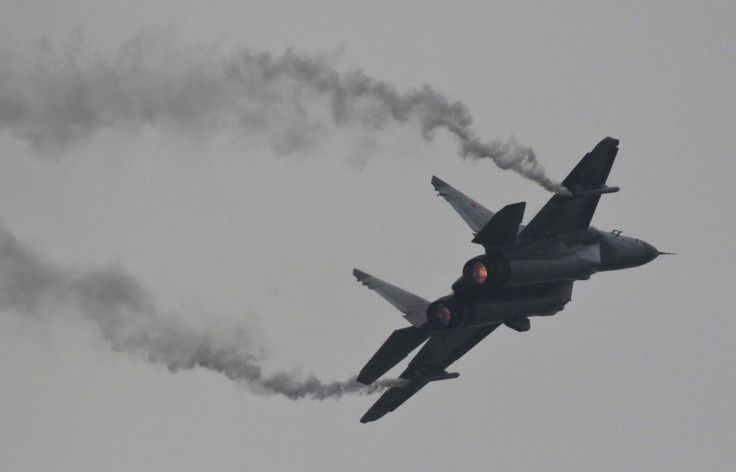Russian fighter jet barrel-rolls over US reconnaissance plane in perilous manoeuvre

In the latest close encounter with a military craft, a Russian fighter jet veered within 15 metres of a US Air Force reconnaissance plane, then barrel-rolled over the top of it. The Pentagon has blasted the intercept as "unsafe and unprofessional."
A Navy spokeswoman told ABC News that the "erratic and aggressive" flying manoeuvre by the SU-27 Russian fighter jet posed a "threat to the safety" of the US crew in the Air Force RC-135 aircraft.
The SU-27 "closed within 50 feet (15m) of the wing-tip of the RC-135 and conducted a barrel roll starting from the left side of the aircraft, going over the top of the aircraft and ended up to the right of the aircraft," said Defence Department spokeswoman Laura Seal.
Just days earlier two Russian warplanes buzzed a US Navy destroyer 31 times over 48 hours, with one pass coming within 30 feet of the ship. In the latest close call, the RC-135 aircraft was flying a "routine route in international airspace over the Baltic Sea" on 14 April, according to a statement from US European Command. At no time did the US plane cross into Russian airspace.
"This unsafe and unprofessional air intercept has the potential to cause serious harm and injury to all aircrews involved," warned the statement. "More importantly, the ... actions of a single pilot have the potential to unnecessarily escalate tensions between countries."
The Pentagon noted that the intercept closely followed the "unsafe Russian encounters" with the Navy destroyer the USS Donald Cook just two days earlier, which was another one of a number of "repeated incidents over the last year" that "raise serious safety concerns."
The simulated attacks by two Russian SU-25 planes on the USS Donald Cook was condemned by Nato Secretary General Jens Stoltenberg, who also called that incident "unsafe and unprofessional."
The Russians denied there was anything wrong with the latest encounter.
Russian "air defence forces detected over the Baltic ocean an unidentified aerial target rapidly approaching the Russian border" and an SU-27 was deployed to identify the target," Major General Igor Konashenkov told Russian news agency Tass. "The flight of the Russian plane was in accordance with international standards for the use of airspace. No emergency situation occurred."
© Copyright IBTimes 2025. All rights reserved.






















